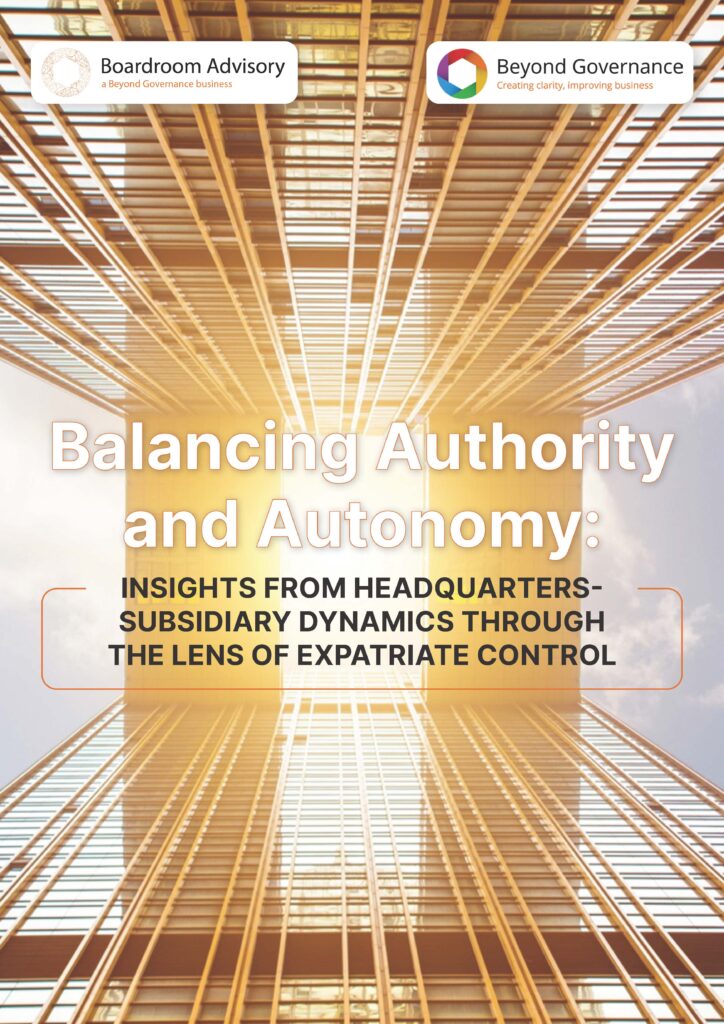Corporate governance & consulting

We can provide you with the rule-set for your business, creating a structured framework that defines decision-making processes, roles and responsibilities and ensuring clarity and accountability amongst stakeholders. It establishes a code of conduct and ethical standards, helping to maintain transparency, mitigate risks, and build trust with shareholders, employees, and partners, ultimately safeguarding the long- term success and reputation of your organisation resulting in higher valuations.
Our experienced team will help you with:
Governance health check
Framework development
Command & control frameworks
A preventative medicine approach to analysing your organisation and identifying weakness and indicators of poor governance, benchmarking against best practice, competitors and your organisation’s values and culture. With a balanced approach to quick-fix and long- term governance framework development, allowing immediate results followed by long-term value creation.
A holistic all-encompassing approach to increasing shareholder and stakeholder results through a development of robust yet fluid governance frameworks that guardrail your business, and allow for effective decision making and execution of top-down strategy.
A series of models that allow mothership entities to control subsidiaries, including integration of entities post acquisition, through responsible ownership and control models that promote long-term value creation, sustainable practices and good corporate governance.
Featured Insights
Businesses need to be resilient to a cope with different challenges, adapt to changing circumstances and thrive in times of stress. But how should organisations manage this?
Red teaming is the proactive and systematic approach to evaluating an organisation’s security strategies and processes, by simulating security breach scenarios that hackers adopt when breaching security systems of organisations. So, engaging a hacker to breach your business as a way of testing the strength of your security systems.
Whist red teaming is often associated with cybersecurity, its principles can be applied more broadly to support overall business resilience.
Insights from headquarters
This paper delves into the strategic role of expatriate placement in shaping subsidiary management control systems within a multinational corporation. Expatriates, employees deployed from the parent company to the subsidiary, play a pivotal role in transferring corporate culture, values, and expertise. Drawing on real-world experiences, this paper explores how expatriates influence various aspects of the subsidiary’s management control system, including policies, procedures, decision-making, communication, and talent development.
The tipping point
Managing a multitude of different types of subsidiaries efficiently is a top priority for organisations aiming to expand their global reach while ensuring control and compliance. What the governance teams need to establish is how many subsidiaries the team can effectively manage without specialised software? There is no one-size-fits-all answer, but there’s a tipping point in subsidiary management around the 50+ entity mark, where manual methods have limitations. The following paragraphs detail the challenges faced when managing many subsidiaries and the solutions that specialised governance software can provide.
Featured case study
Our client, a large private financial services corporation, needed a fresh perspective on their governance framework. Deep analysis with the board and management led to identifying their ideal framework.
We improved their governance processes, practices, and procedures in line with their culture which we had deduced from open conversations. Our work supported the board to oversee the embeddedness of the governance framework. This helped the business streamline its reporting and introduce a new model to support good governance.
The CEO was impressed with our holistic approach and how we considered all aspects of the business and its culture. The Board of Directors were encouraged by our pragmatic approach to build good governance rather than bureaucracy.
Our client, a successful building company was looking to expand the business, seek outside investment and then pursue an exit.
We carried out our governance review to prevent any hiccups with investor due diligence checks; their expansion plans (an increased workforce and subsidiaries) and their business valuation exit.
The health check was appropriate to the size of the business and pragmatic. Our RAG rated report set out a series of recommendations and an action plan. We identified several areas in which enhanced governance would bring cost and time savings to the business and where investors would expect higher levels of governance.
We also provided feedback on the board composition, the most effective way to run board meetings, and identified that several legal fillings had been overlooked by their lawyers.
Our client, the founder and MD, was impressed with our ability to introduce the optimum level of ‘big company’ governance to their business without losing their entrepreneurial spirit.



